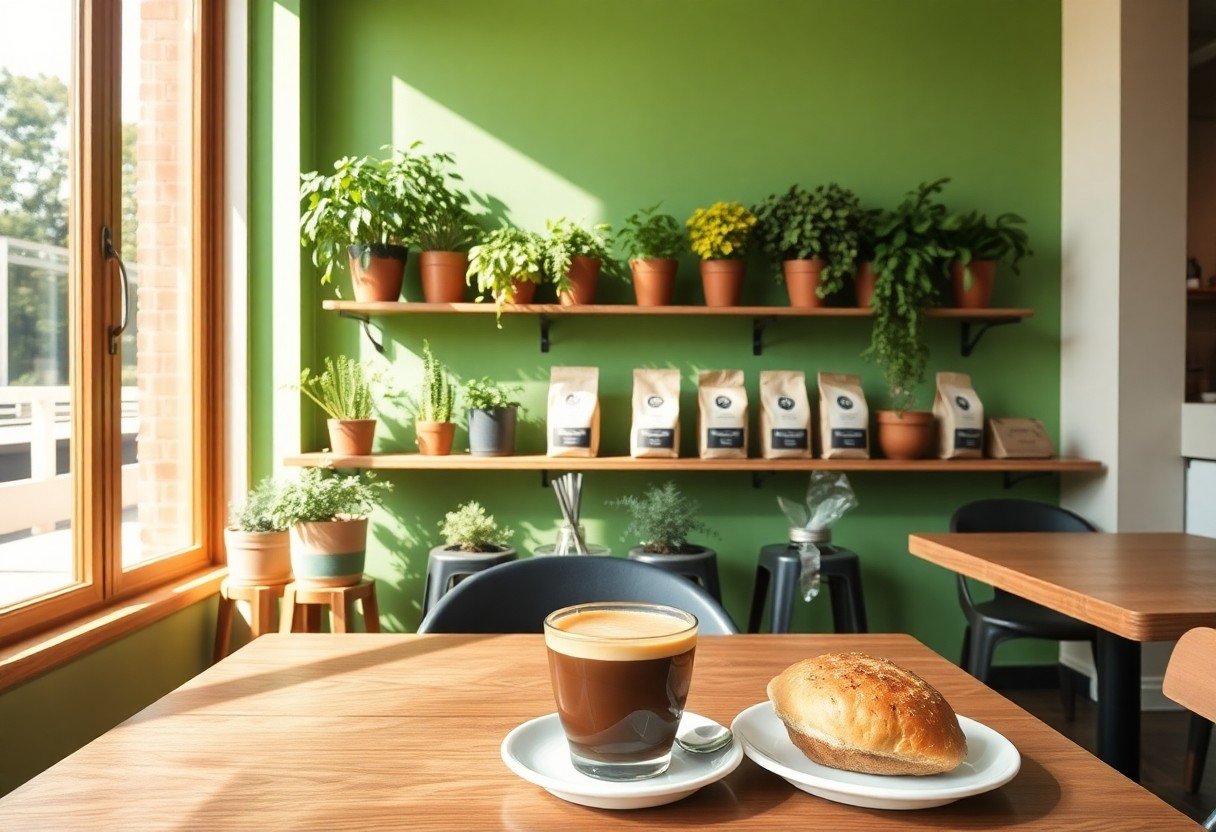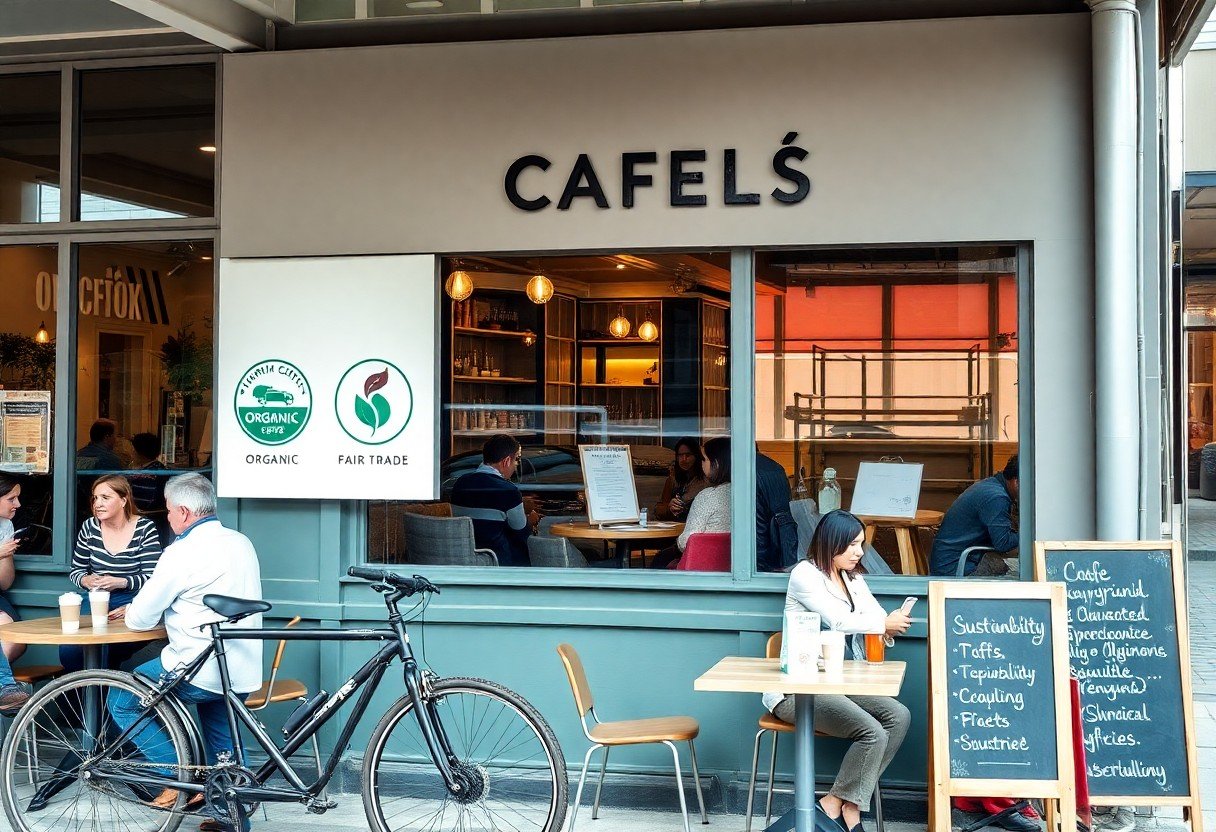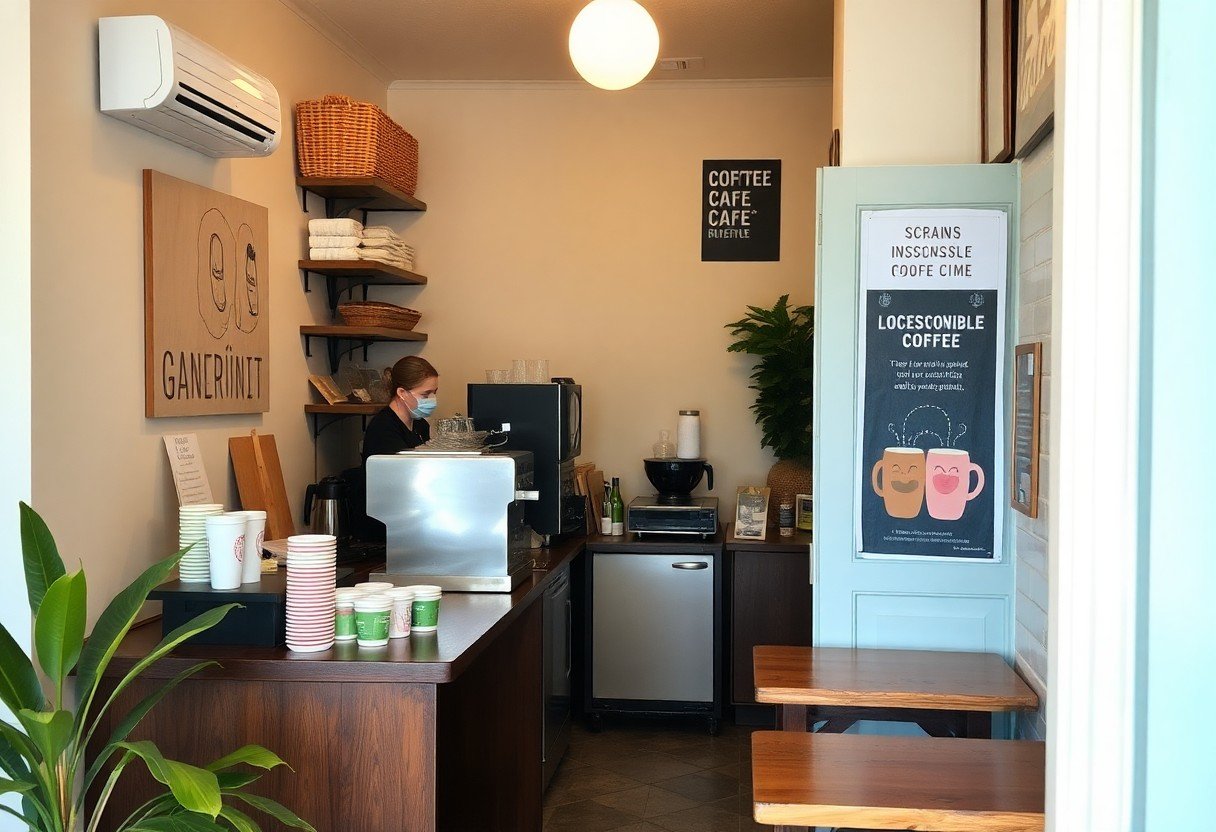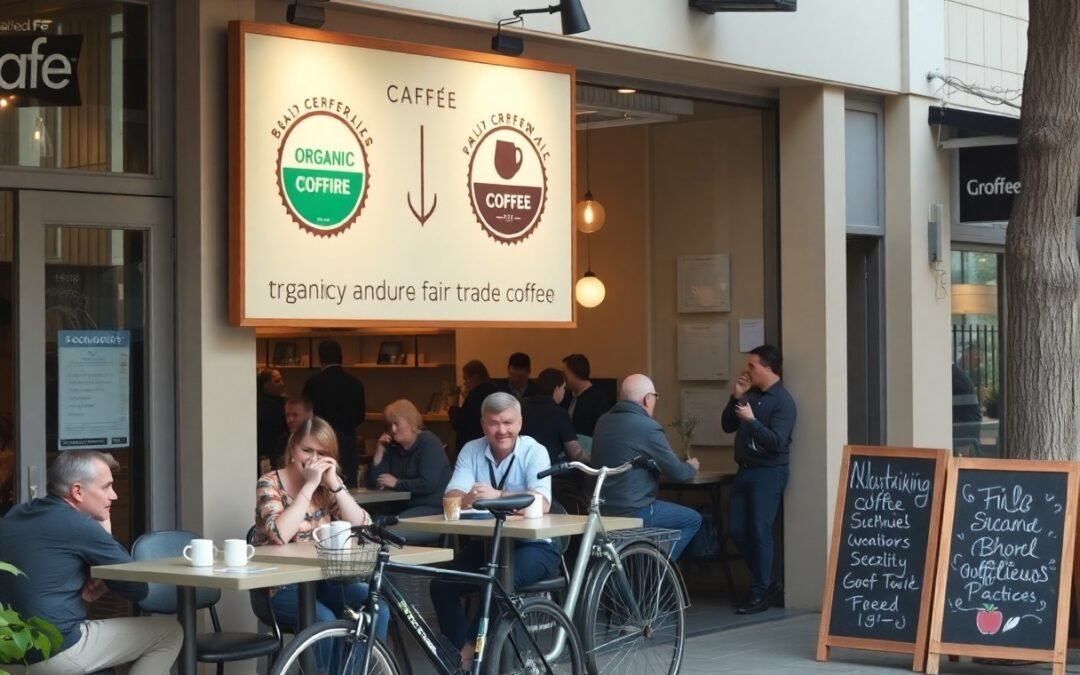You can enjoy your coffee while supporting sustainable practices in Adelaide. This guide highlights local cafes and roasters committed to eco-friendly sourcing and brewing methods, so you can make conscientious choices with every cup. Discover places like Cafetal Coffee Co. Roasters in Adelaide, where quality meets sustainability, ensuring that your coffee habit helps protect the planet.
The Eco-Friendly Coffee Supply Chain in Adelaide
Sourcing Fair Trade Beans
Many Adelaide cafes prioritize sourcing Fair Trade beans to ensure that farmers receive fair compensation for their labor. This initiative supports sustainable farming practices and promotes community development in coffee-producing regions. By choosing Fair Trade-certified coffee, you directly contribute to better living conditions for farmers, enabling them to invest in their families and local communities. Brands like Fairhaven Coffee and Cibo Espresso highlight the importance of these ethical relationships through their coffee selections.
Engaging with local roasters that feature Fair Trade options allows you to enjoy a quality cup while making a responsible choice. Roasters like The Coffee Barun and Little Cypress Coffee Roasters are committed to transparency in their sourcing. You can often find detailed information about the farms they collaborate with, which enables you to understand the journey of your coffee from farm to cup.
Supporting Local Farmers and Businesses
Adelaide’s coffee scene increasingly focuses on supporting local farmers and businesses, emphasizing the importance of local economies. Establishments that source beans from local growers minimize carbon footprints and stimulate the local agricultural industry. You can enjoy a less traveled coffee route while helping farmers thrive in their craft, as several cafes in Adelaide proudly feature coffee blends from South Australian farms.
Incorporating locally sourced ingredients doesn’t just apply to coffee beans; many cafes enhance their offerings with local milk, pastries, and snacks. For example, establishments like Market Espresso commit to sourcing from local dairies and bakeries, ensuring that your coffee experience reflects the unique flavors of Adelaide and its surrounding regions.

Must-Visit Cafés Committed to Sustainability
Top Picks for Fair Trade and Organic Brews
At the forefront of sustainable coffee consumption in Adelaide are cafés that prioritize fair trade and organic sourcing. One standout, The Market Shed on Holland, not only serves ethically sourced coffee but also hosts a range of local food producers, ensuring that your cup supports a broader community. You’ll appreciate their commitment to using organic milk and vegan alternatives as well, promoting a more holistic approach to sustainable dining.
Another gem is Velo Café, renowned for its fair trade coffee sourced directly from farmers in South America. Their partnerships with local roasteries allow you to sip on unique blends while knowing your choices contribute to fair wages and sustainable farming practices. This commitment to quality over quantity ensures that your caffeine fix also aligns with your ethical values.
Innovative Practices from Local Roasters
Local roasters in Adelaide are pioneering innovative practices that redefine sustainability in coffee. You’ll find that many, like the popular Glenunga Coffee Roasters, are experimenting with zero-waste techniques, ensuring that coffee by-products are either composted or repurposed into products like natural fertilizers and behavioral plant nutrients. Their dedication penetrates deep into the supply chain, focusing on minimizing both environmental impact and carbon footprint.
Similarly, Oath Coffee has made headlines for sourcing its beans through direct trade, ensuring transparency and equity for farmers. Their practice of tracing coffee from farm to cup allows you to appreciate not just the flavor, but the ethical journey behind your brew. This transparency creates a community of conscious consumers who can engage meaningfully with their choices.
By cutting down on food waste through in-house recycling programs or selecting energy-efficient brewing methods, these local roasters embody a forward-thinking approach. You’ll find that they often engage with the community by hosting workshops, educating café-goers about the importance of sustainable practices in coffee growing and consumption. Choosing to support these businesses means investing in a future where quality coffee is produced responsibly.

The Role of Certifications in Choosing Sustainable Coffee
Navigating Labels: What They Really Mean
Understanding coffee certifications can significantly impact your choice of sustainable options. Labels like Fair Trade, Rainforest Alliance, and USDA Organic represent specific standards and practices. Fair Trade focuses on equitable trade terms for producers, ensuring they receive a living wage while promoting environmental practices. USDA Organic, on the other hand, guarantees that no synthetic pesticides or fertilizers were used in the growing process, which supports both your health and the health of the ecosystem.
Many roasters provide information about the certifications of their beans, but not all certifications are created equal. For example, Rainforest Alliance emphasizes biodiversity and sustainability by fostering habitats and promoting responsible farming practices. Knowing the nuances of these certifications allows you to align your coffee choices with your values, ensuring each cup you enjoy supports ethical farming and environmental stewardship.
The Impact of Certification on Quality and Taste
Certified coffees often showcase distinct qualities that reflect their sustainable origins. For instance, Fair Trade farms are usually smaller operations where meticulous farming techniques are employed, resulting in beans that convey unique flavor profiles. The connection between sustainable practices and quality is increasingly acknowledged, with scholars noting that organic farming can enhance the bean’s essence through naturally occurring nutrients in the soil. This connection leads to a richer, more vibrant taste experience in your cup.
While certifications can guide you toward quality, the actual taste can also depend on how beans are roasted and prepared. Many specialty coffee roasters emphasize these certifications as a mark of integrity, inviting you to savor not just the flavor but the story behind each sip. Enjoying a cup of certified coffee often means indulging in flavors shaped by ethical practices and skilled craftsmanship, enhancing your overall coffee-drinking experience.
Along with quality assurance, these certifications can foster a deeper appreciation for the complexities of coffee. As you explore certified brews, you’ll likely discover that the flavor nuances stem from not just the growing methods but also the socio-economic impact of your purchasing choices. Sipping on a certified cup means participating in a larger movement toward sustainability, making your coffee experience even more enriching.
Brewing Methods That Minimize Environmental Impact
Sustainable Coffee Brewing Techniques
Your brewing method can significantly influence the sustainability of your coffee habits. Opting for methods like the French press, pour-over, or cold brew can reduce waste and energy consumption. For instance, the French press doesn’t require paper filters, minimizing landfill waste, while the pour-over method allows you to control the extraction process, resulting in less coffee being over-brewed and wasted. Cold brew not only enhances flavor but also requires less energy than traditional brewing methods, as it relies on time rather than heat to extract coffee’s rich taste.
Each of these techniques prioritizes flavor and sustainability, often yielding a richer cup without relying on disposable materials. By using a reusable stainless-steel filter or investing in a quality ceramic dripper, you can further decrease your environmental impact. Plus, these methods encourage mindfulness about your coffee consumption, making your morning ritual a more intentional experience.
Equipment Choices for the Eco-Conscious Brewer
The right equipment can elevate your sustainable coffee brewing while minimizing your carbon footprint. Investing in durable, non-plastic items, such as a glass coffee maker or a stainless-steel kettle, not only enhances the flavor of your brew but also lasts longer, reducing the need for replacements. Consider a manual grinder rather than electric options; they consume no electricity, and the grinding process provides a satisfying tactile experience.
Look for brands that prioritize sustainability in their manufacturing practices. Many companies offer equipment designed specifically for longevity and recyclability. For example, some coffee makers are crafted from recycled materials or are designed to be fully repairable, preventing disposability and promoting a circular economy approach. Always check for sustainability ratings and eco-certifications to ensure your choices align with your values.
Choosing equipment made from renewable resources or those that support fair trade practices can further reinforce your commitment to environmental stewardship. Many local artisans in Adelaide craft handmade brewing tools that minimize energy use during production and can be more environmentally friendly than mass-produced equipment. Investing in such products often supports the local economy while enhancing your coffee experience.

Community Initiatives Promoting Responsible Coffee Consumption
Local Events and Education on Sustainability
Adelaide’s vibrant coffee culture engages local communities through events that focus on sustainability and responsible consumption. Numerous cafes host workshops where you can learn about fair trade practices, the environmental impact of coffee production, and how to make more sustainable choices. For example, initiatives like “Sustainable Coffee Month” feature pop-up markets and tastings that spotlight local roasters committed to ethical sourcing. Participating not only enriches your knowledge but also connects you with like-minded individuals passionate about making a difference.
Education extends beyond events into partnerships with schools and universities. Programs aimed at students involve hands-on experiences in sustainable farming practices and the coffee supply chain. When you support these initiatives, you empower future generations to value sustainability in their consumption habits, fostering a community that prioritizes environmentally responsible choices.
Engaging with the Adelaide Community for a Greener Future
Building a greener future in Adelaide hinges on collaboration across various sectors. Local businesses and coffee shops are increasingly joining forces to create a unified message around sustainability. By participating in community forums, you can voice your ideas and influence the collective approach to reducing carbon footprints within the coffee industry. Initiatives like the “Adelaide Coffee Collective” encourage cafes to share resources, such as biodegradable packaging and waste-reduction strategies, significantly impacting how coffee is produced and consumed.
Engagement with the community not only allows you to advocate for sustainable practices but also enables you to hold businesses accountable. By demanding transparency in sourcing and environmental impact, you’re contributing to a culture that values ethical consumption. Regular community meet-ups and online discussions ensure that everyone has a seat at the table, reinforcing the message that sustainable coffee is a shared responsibility.
Final Words
Taking this into account, your choice to support sustainable coffee in Adelaide allows you to enjoy your favorite beverage while contributing to a better future for the planet. By opting for cafes that prioritize ethical sourcing and eco-friendly practices, you not only enhance your experience but also join a community committed to responsible consumption. Each cup of coffee you savor becomes a step toward promoting sustainability in the local economy.
Your journey to sipping responsibly doesn’t end here; keep seeking out cafes that align with your values and encourage others to do the same. Every time you choose sustainable options, you empower producers who focus on environmental stewardship and social responsibility. Embrace your role in this movement and elevate your coffee experience, knowing you’re making a positive impact with each delicious sip.
FAQ
Q: What is sustainable coffee?
A: Sustainable coffee refers to coffee produced using environmentally-friendly practices that promote ecological balance, social equity, and economic stability for coffee farmers and communities.
Q: Where can I find sustainable coffee in Adelaide?
A: Sustainable coffee can be found at various cafes and roasteries in Adelaide, such as Community Coffee, Exchange Specialty Coffee, and Caffeinate. Look for those that prioritize ethical sourcing and environmental practices.
Q: How can I identify sustainable coffee brands?
A: Look for certifications such as Fair Trade, Rainforest Alliance, or organic labels on the packaging. Research brands that advocate for responsible sourcing and sustainable farming methods.
Q: What are the benefits of drinking sustainable coffee?
A: Drinking sustainable coffee supports environmentally-friendly farming practices, ensures fair wages and working conditions for farmers, and often results in higher quality coffee due to better cultivation methods.
Q: Are there any local events in Adelaide focused on sustainable coffee?
A: Yes, Adelaide hosts various coffee festivals and sustainability events throughout the year, such as the Adelaide Coffee Festival. Check local listings for dates and details on workshops, tastings, and discussions about sustainable coffee.

